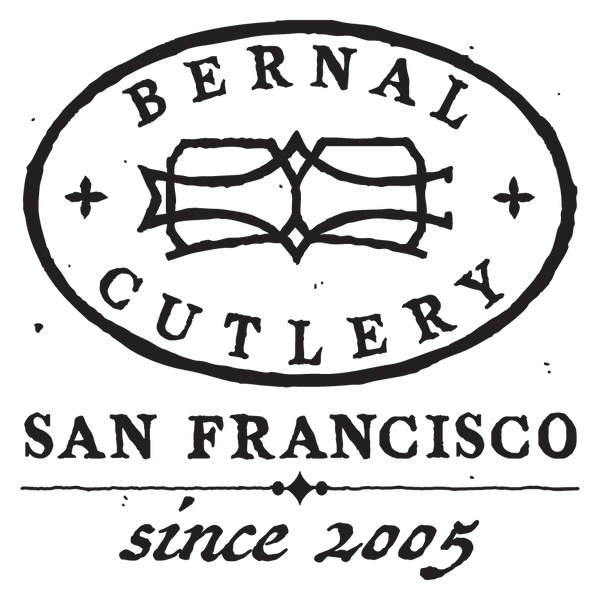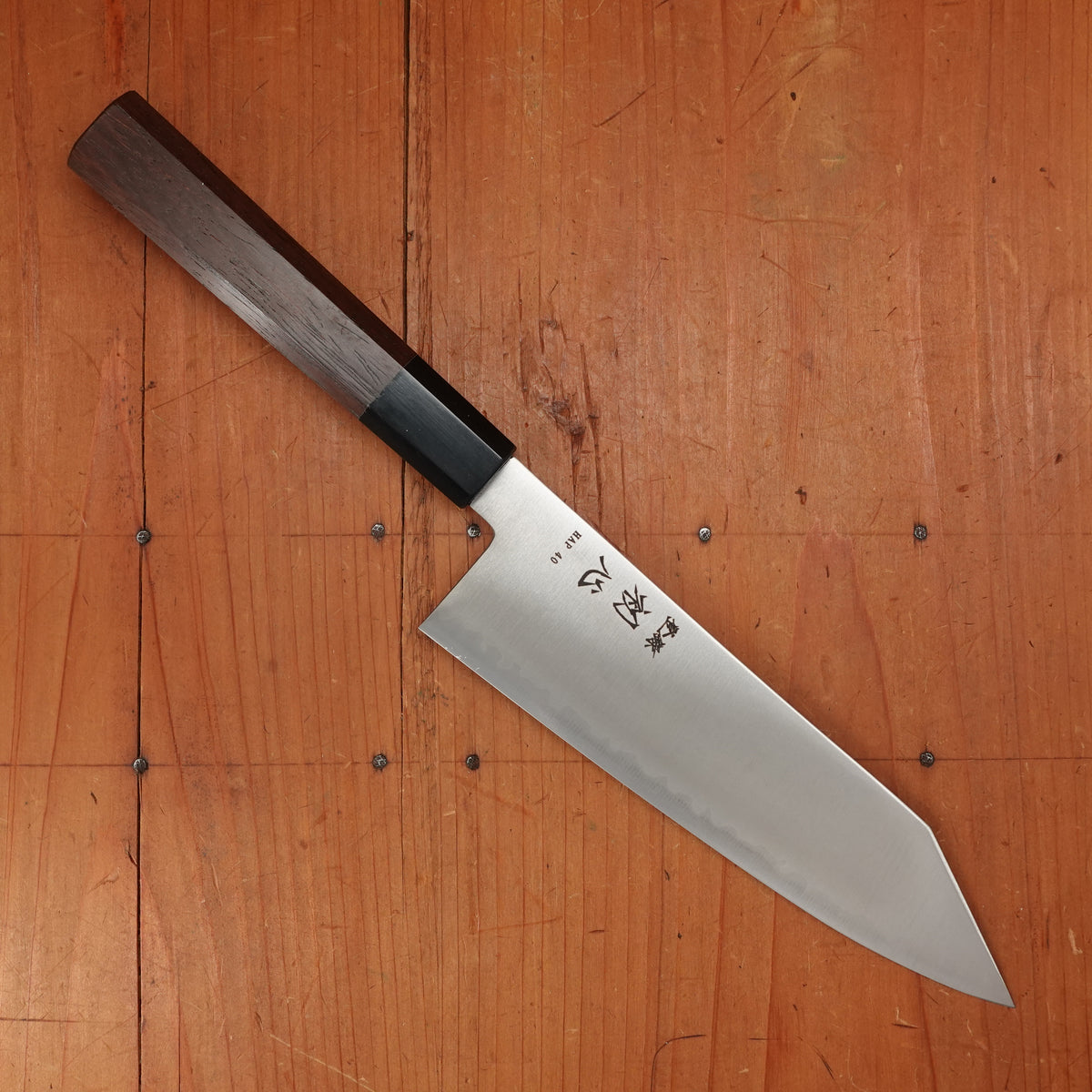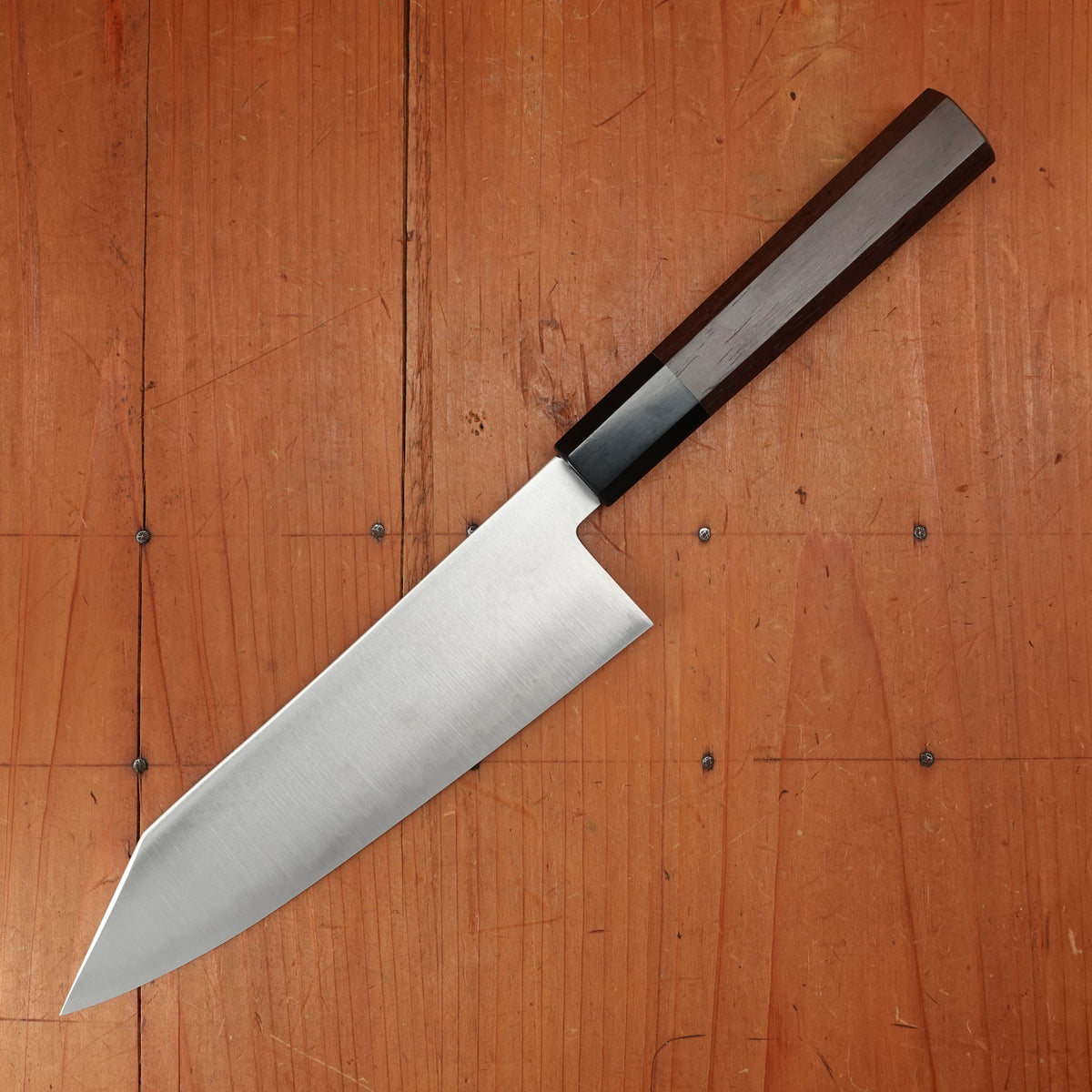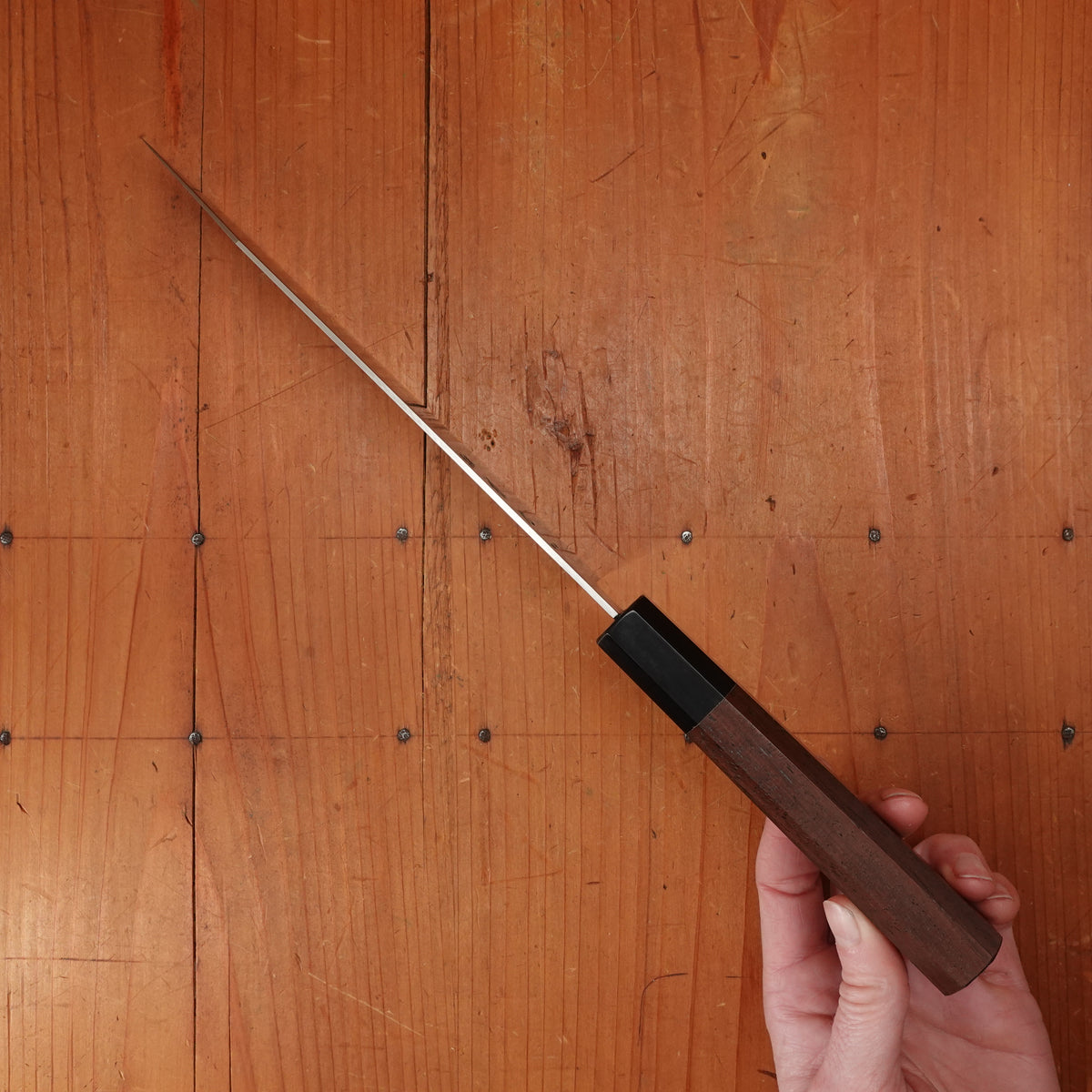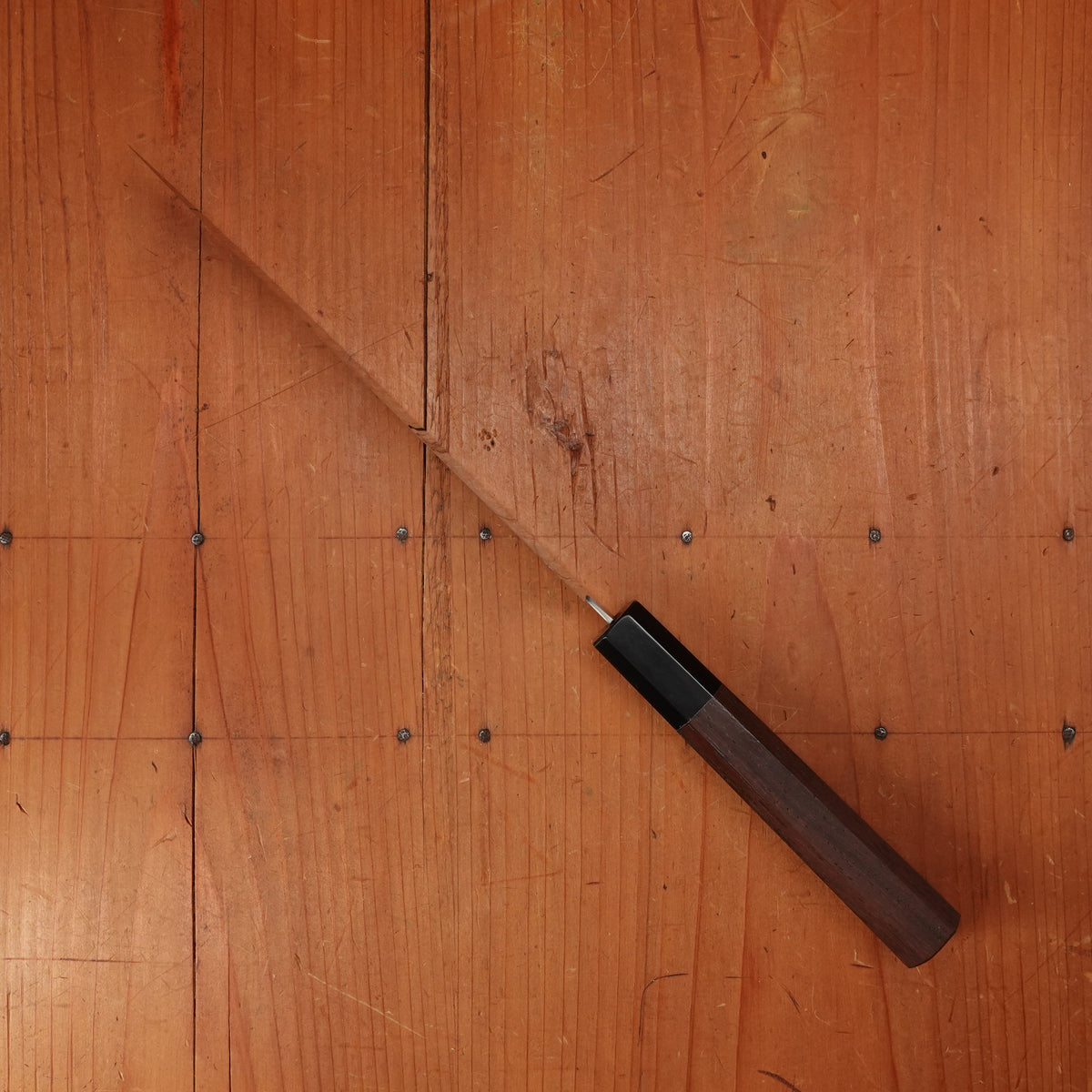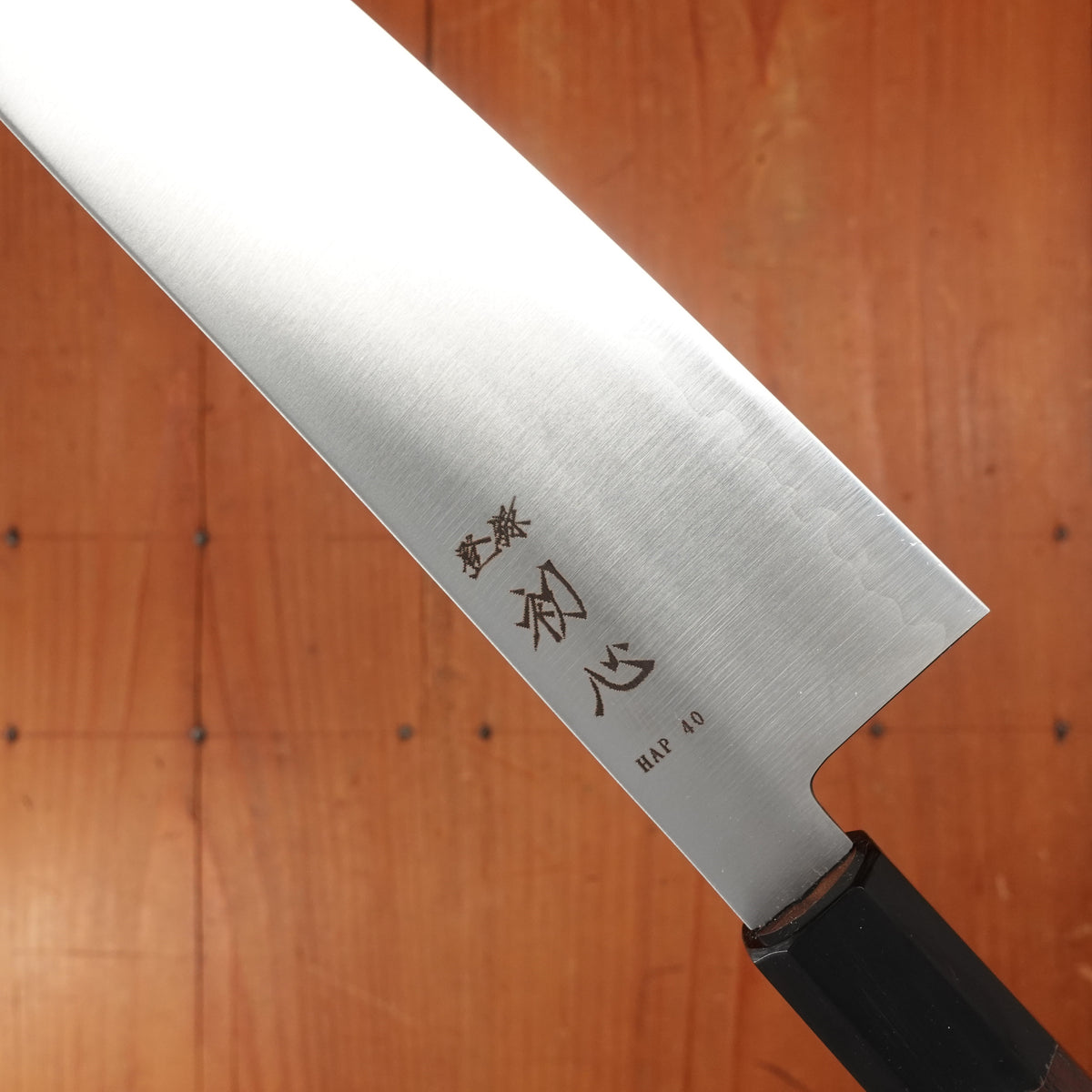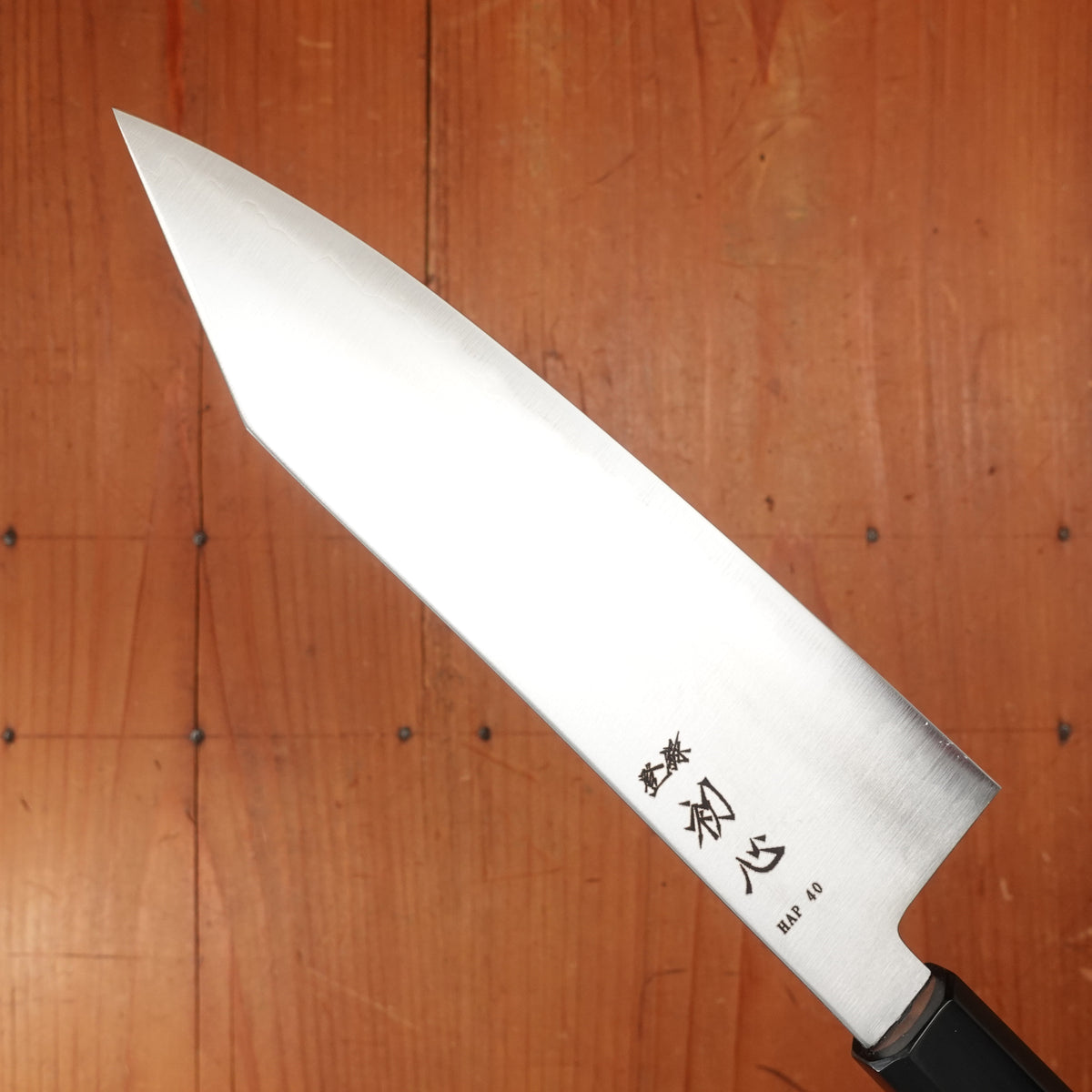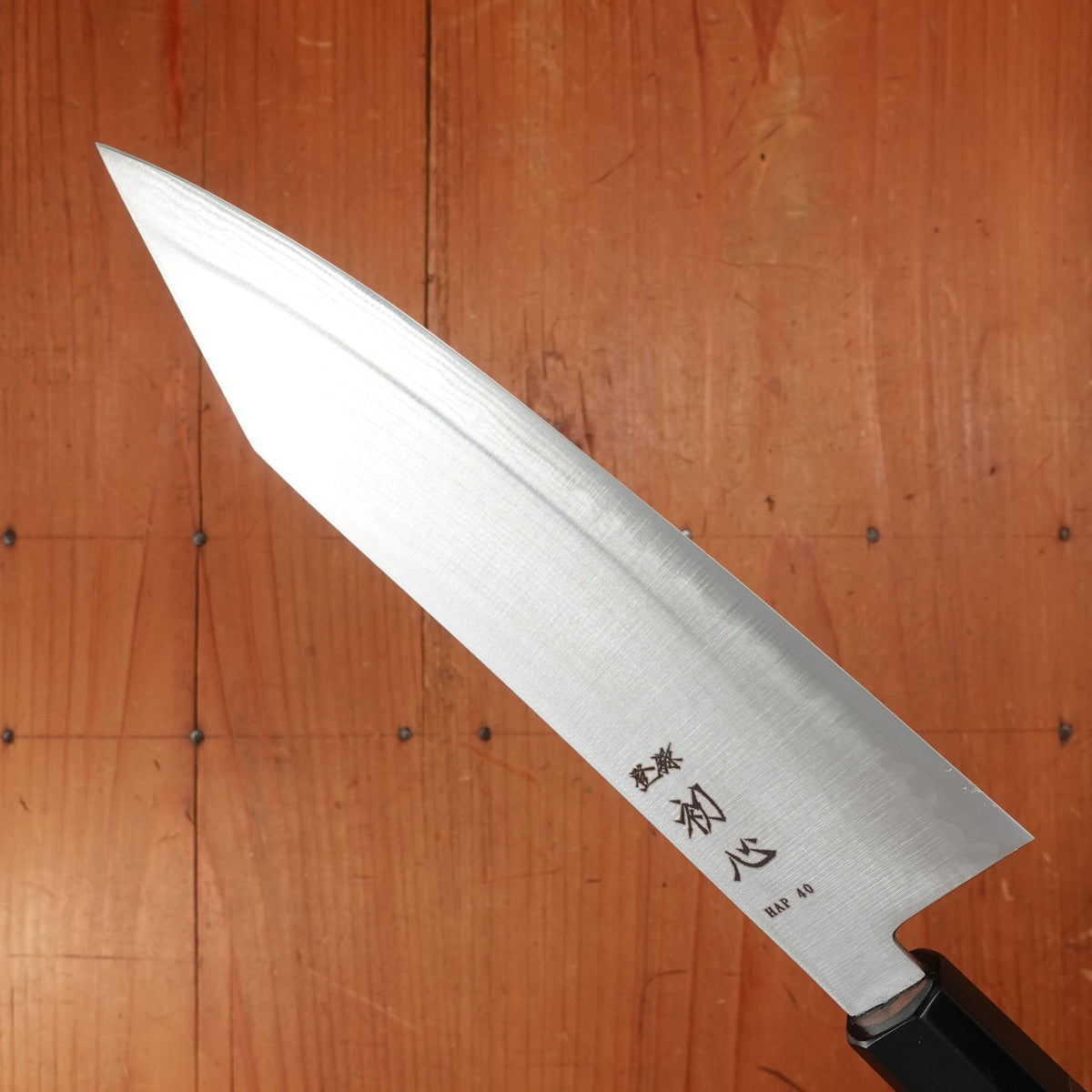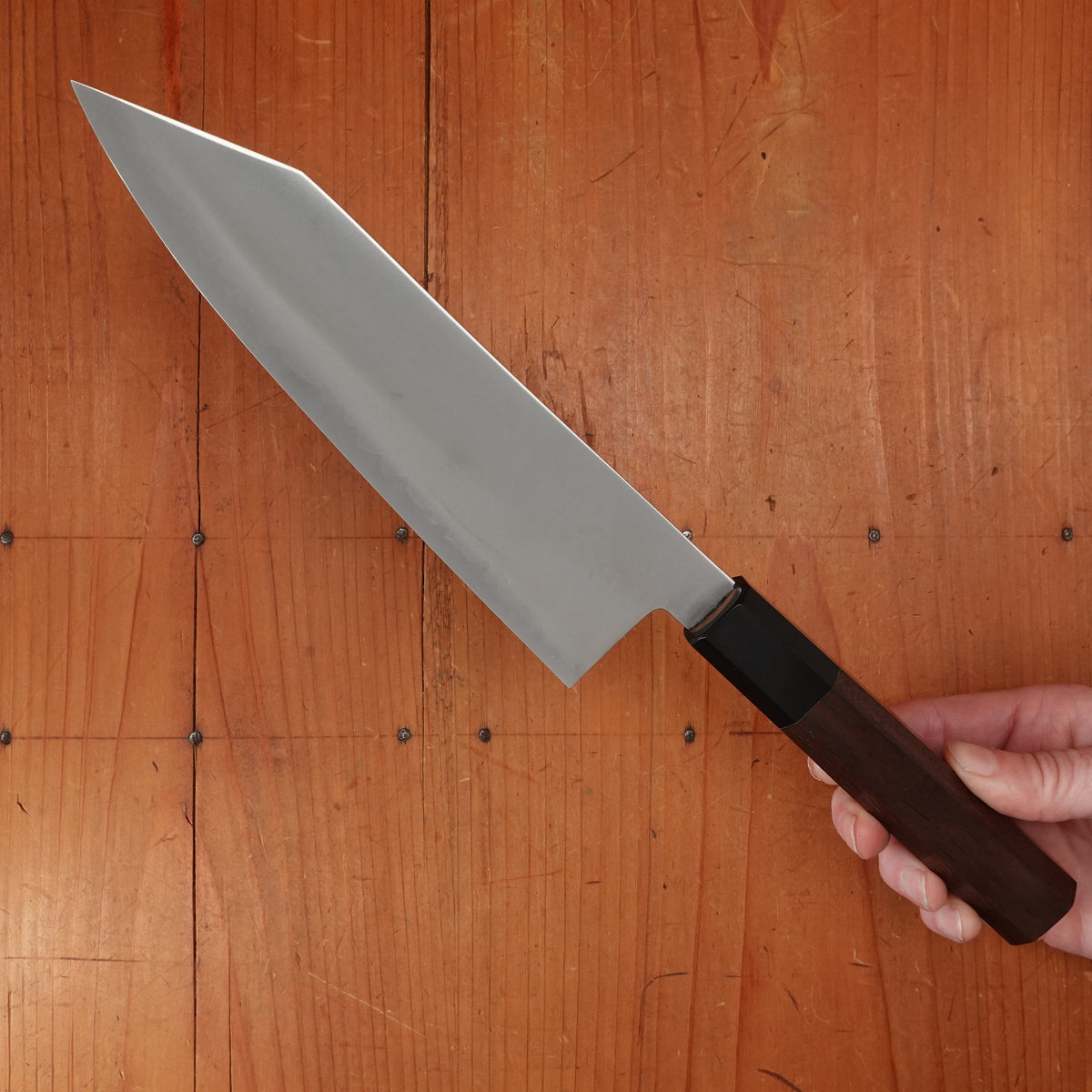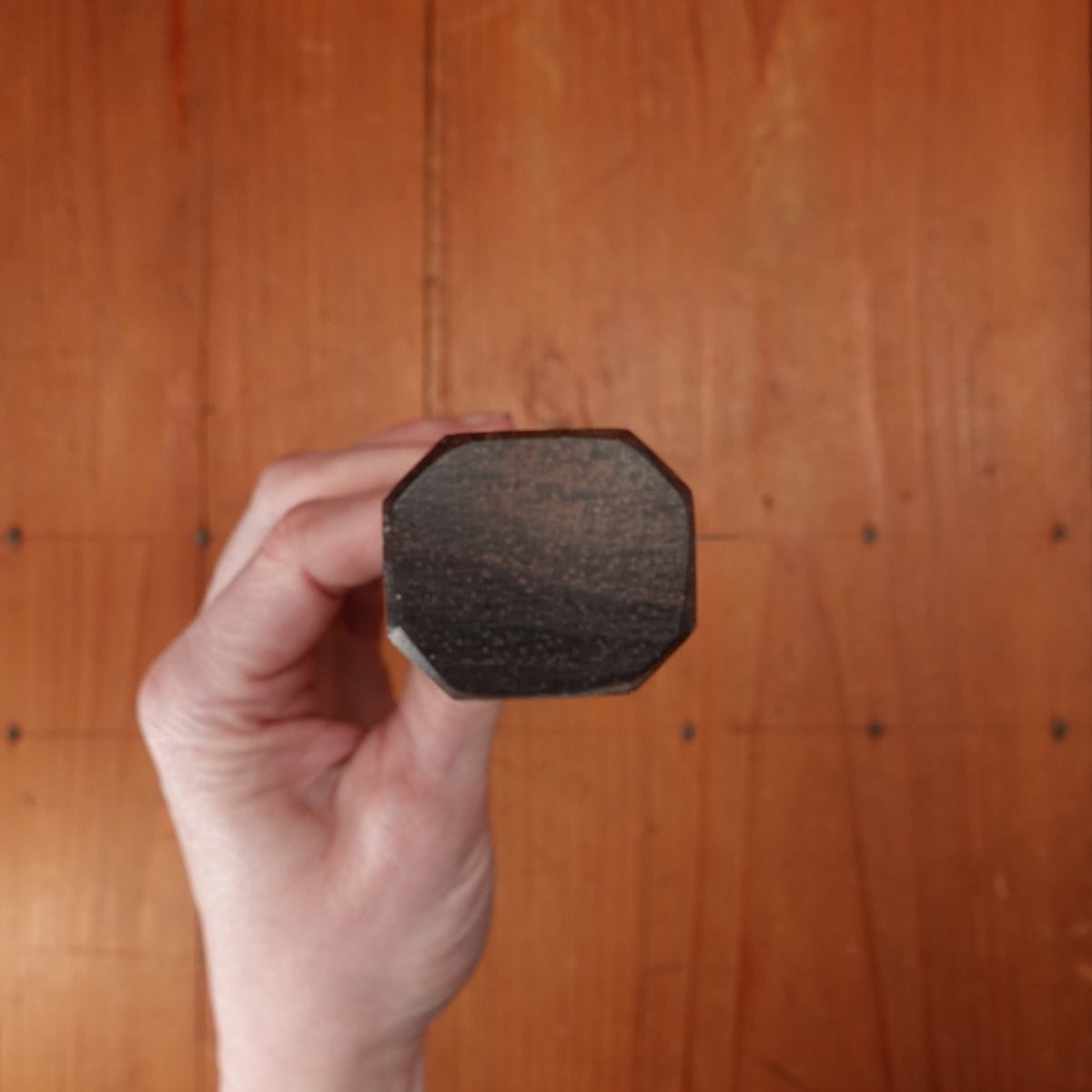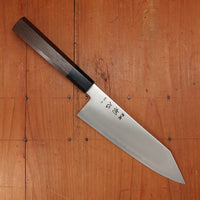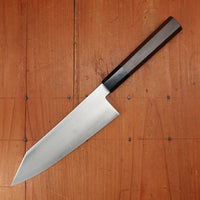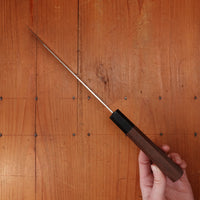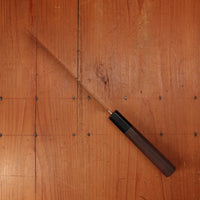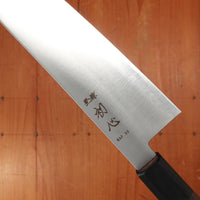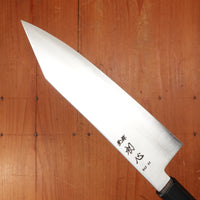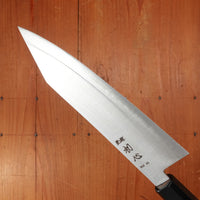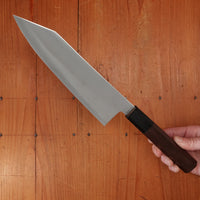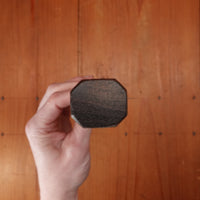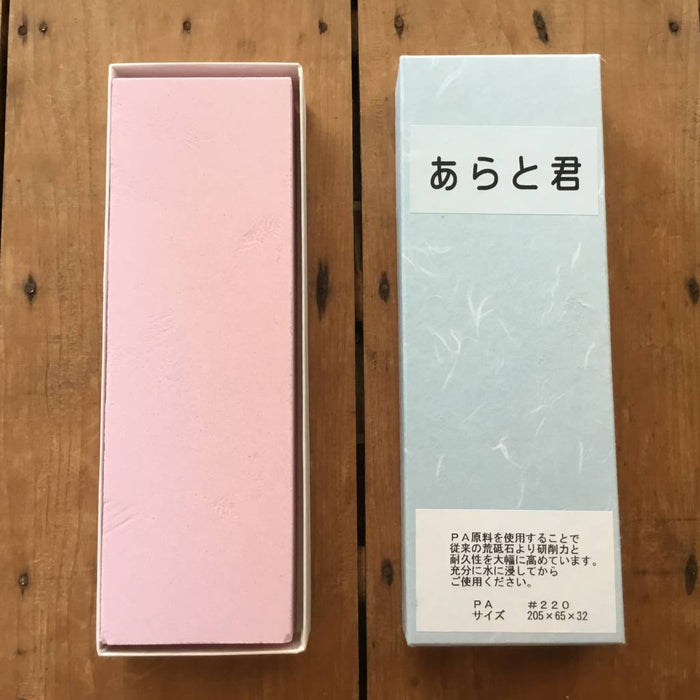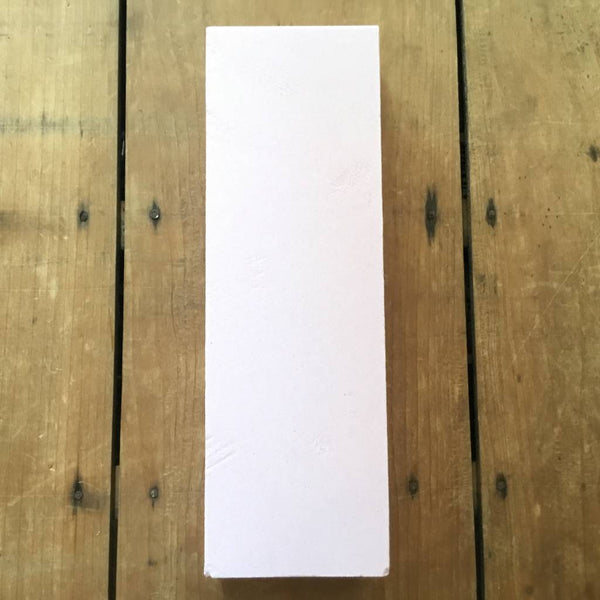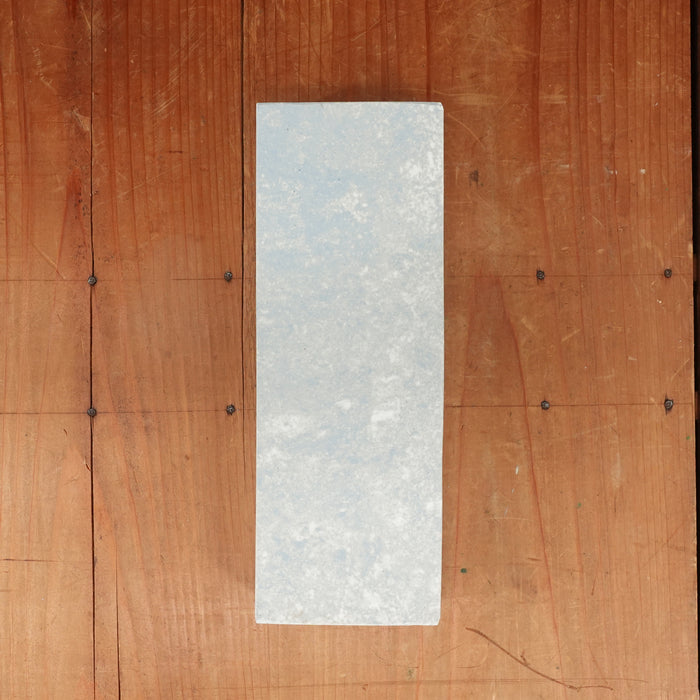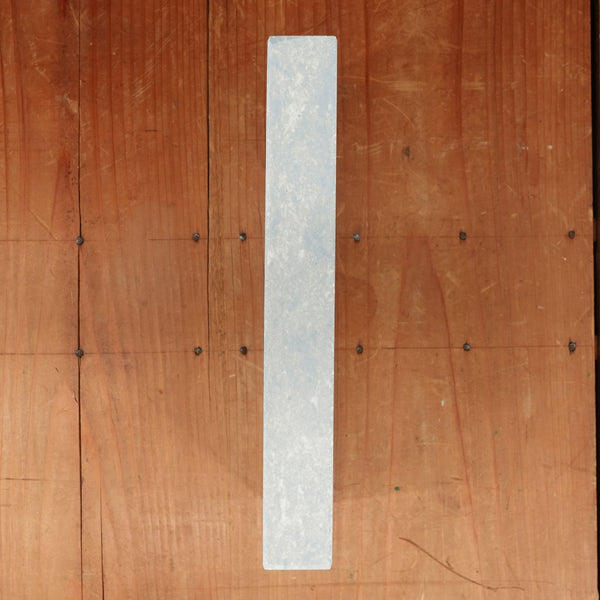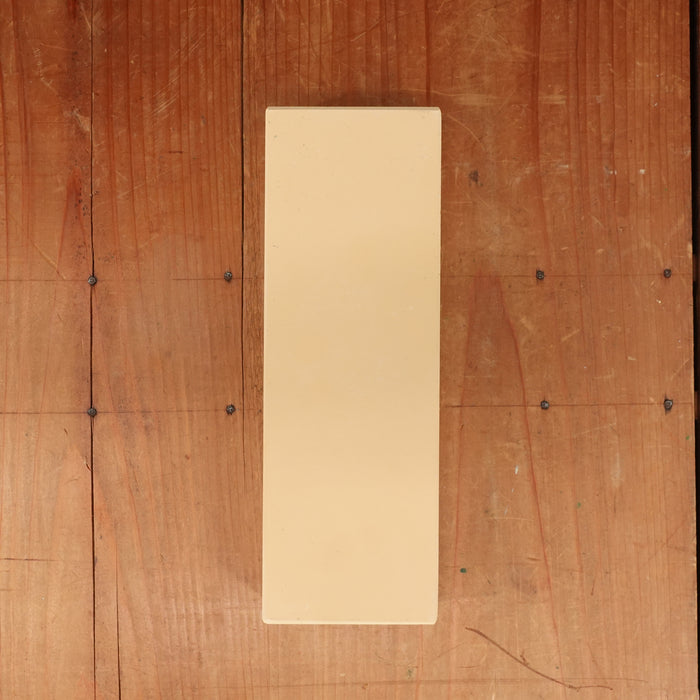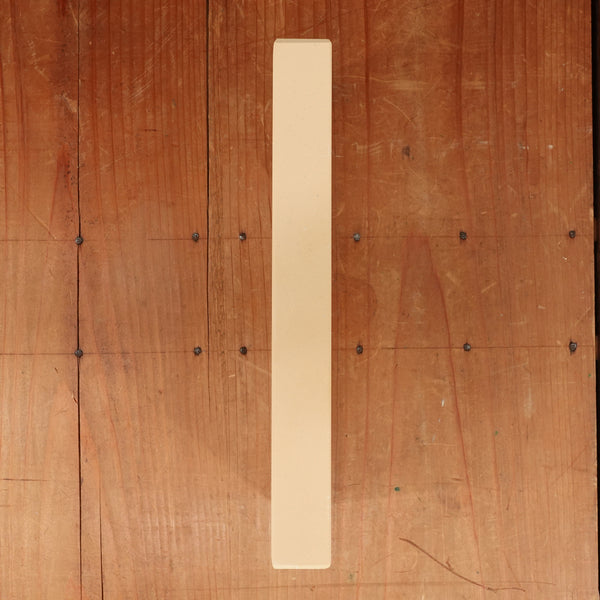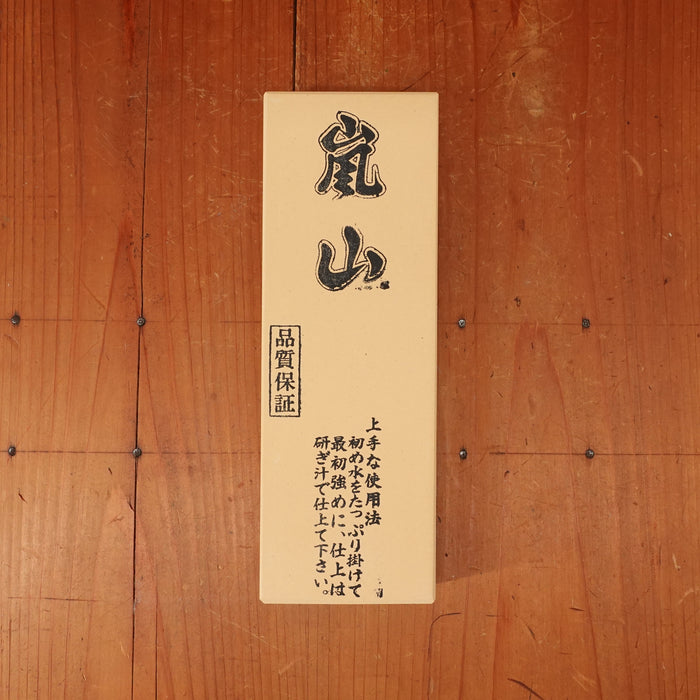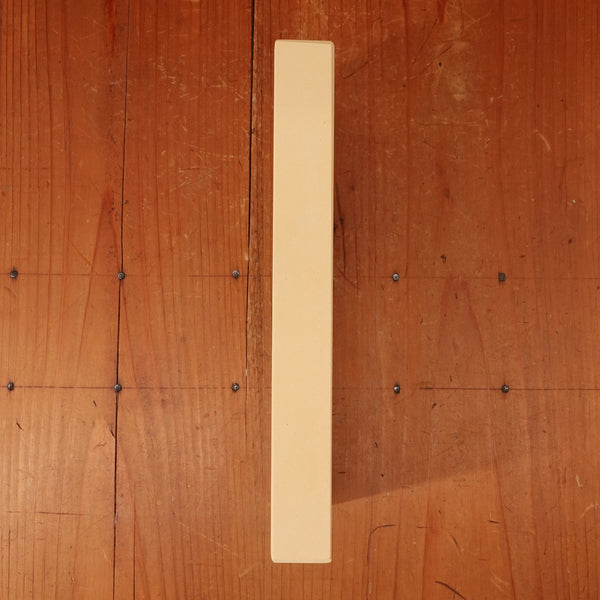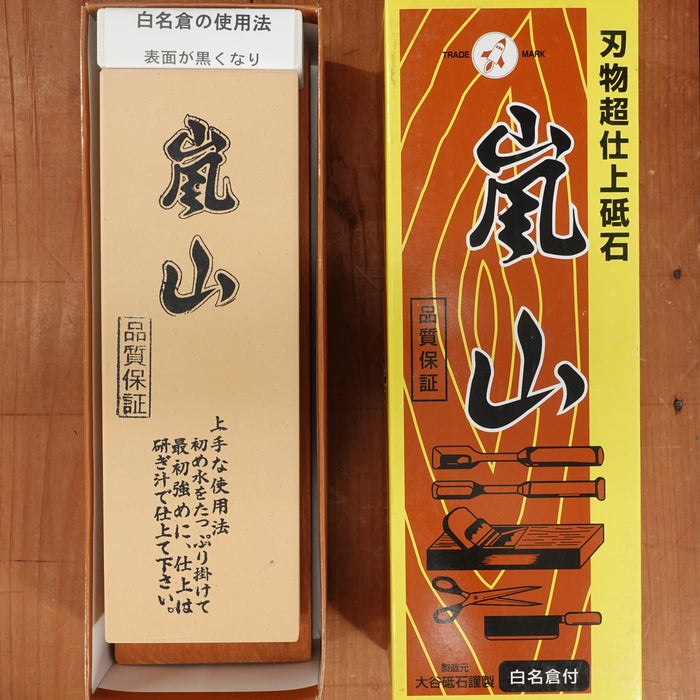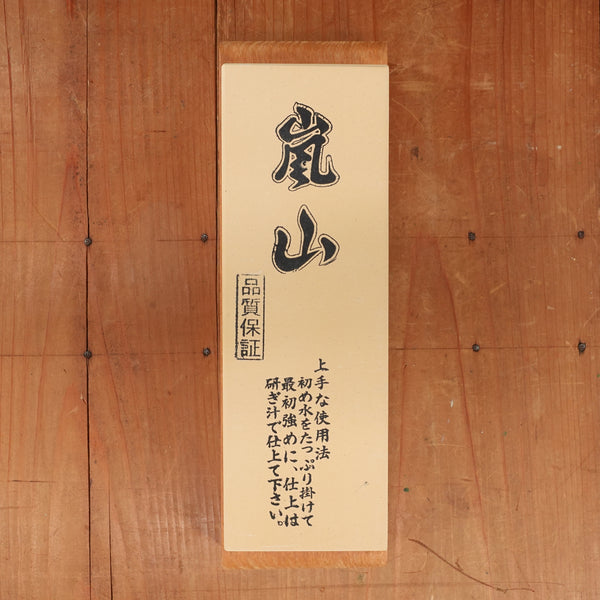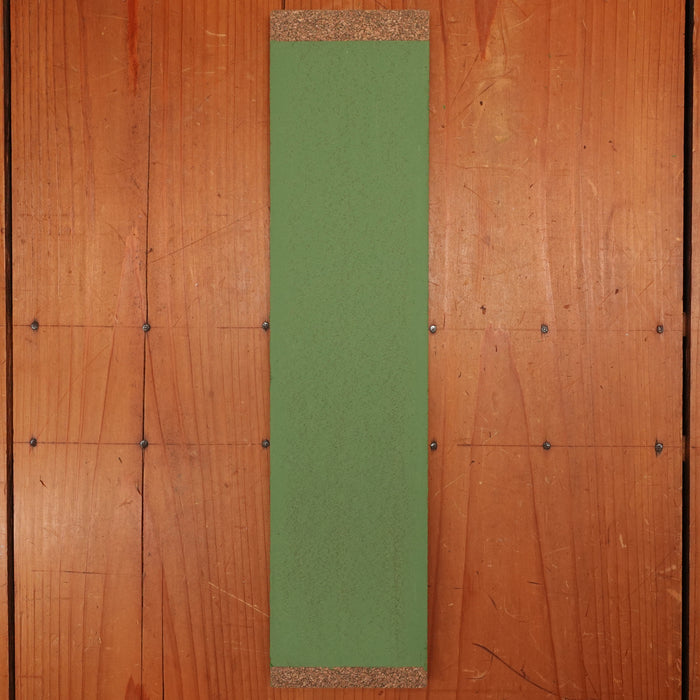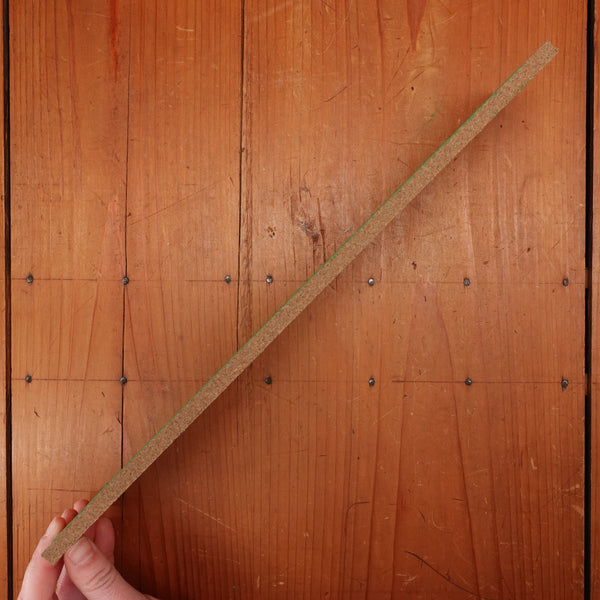Hatsukokoro Hayabusa 180mm Bunka HAP40 Walnut Handle
-
Regular Price
-
£164.37
-
Sale Price
-
£164.37
-
Regular Price
-
Sold Out
-
Unit Price
- per
- Regular Price
- £164.37
- Sale Price
- £164.37
- Regular Price
- Unit Price
- per
We are happy to add these high performance knives from Hayabusa into our lineup, great for busy professionals and home cooks who are looking for long edge life and can look after a non stainless knife.
These knives have a stainless suminagashi or damascus cladding over a high alloy HAP 40 core with a walnut wa-style handle.
HAP 40 made by Hitachi's Yasugi Specialty Steels is a high alloy powder metal with exceptionally excellent edge holding and toughness. HAP 40 is not a stainless alloy but rusts slowly given it's rich alloy composition, sometimes referred to as semi-stainless.



Listed Length: 180mm
Total Length: 321mm
Edge Length: 182mm
Heel Height: 48mm
Spine Thickness: 1.9mm
Weight:
Orientation: Ambidextrous
Blade Type: Stainless Clad Semi-Stainless Steel
Steel Type: HAP40
Steel Hardness (HRC): 65-67
Maintenance: Some Attention
Handle Type: Japanese (wa)
Handle Material: Walnut & Horn Ferrule
Dive Deeper
Medium-Fine finish - Japanese
Sharpening Supplies
Stones & Accessories selected specifically for this knife.
Arato-kun #220 Extra Coarse Grit Whetstone
- Regular Price
- £25.64
- Sale Price
- £25.64
- Regular Price
-
- Unit Price
- per
Bernal Cutlery Takarazukushi 1200 Grit Blue Marble Semi-Soft Ceramic Japanese Whetstone
- Regular Price
- £55.80
- Sale Price
- £55.80
- Regular Price
-
- Unit Price
- per
Bernal Cutlery Takarazukushi 4000 Grit Yellow Semi-Hard Resinoid Japanese Whetstone
- Regular Price
- £61.83
- Sale Price
- £61.83
- Regular Price
-
- Unit Price
- per
Arashiyama #6000 Whetstone Stone NO Wooden Base
- Regular Price
- £43.73
- Sale Price
- £43.73
- Regular Price
-
- Unit Price
- per
Arashiyama #6000 Whetstone With Nagura Stone and Wooden Base
- Regular Price
- £46.75
- Sale Price
- £46.75
- Regular Price
-
- Unit Price
- per
Bernal Cutlery Monodiachrome™ Precharged Deburring Strop
- Regular Price
- £30.16
- Sale Price
- £30.16
- Regular Price
-
- Unit Price
- per
HAP40

